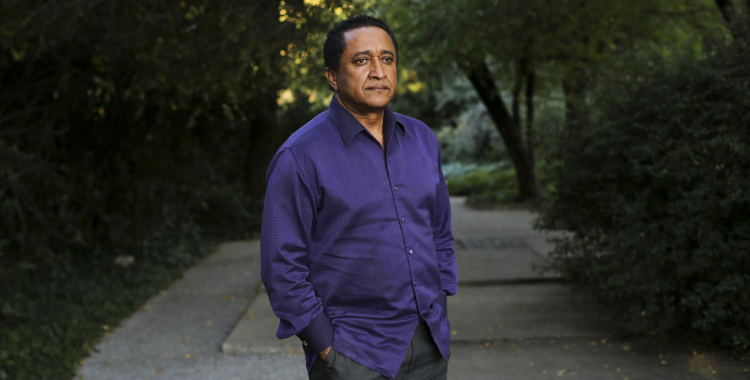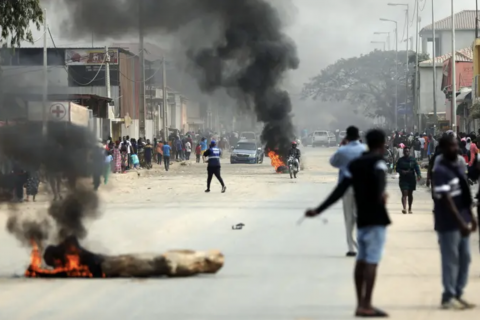The singer performed regularly in Portugal, having, for example, opened, in 2017, the 34th Theater Festival of Almada and played, in that same year, at the World Music Festival of Sines.
His latest album, "Classics of my Soul" (2010) presented him, in 2013, at the Centro Cultural de Belém, in Lisbon, with the Gulbenkian Orchestra, in a concert that he described as a "meeting of classical Western music with music contemporary Africa ".
This record work, recorded with the London Symphony Orchestra, under the direction of conductor Nick Ingman, was named as one of the albums of the year in the ‘world music’ category by the French newspaper Libération.
Regarding her music, often defined as a mix of Afro-pop, fado, ‘soul’ and Brazilian influences, Waldemar Bastos explained that it has to do with all the songs she has heard.
"Because we, if we talk historically, while colonized, we heard everything - I listened to Amália Rodrigues. My music has a lot of everything, because everything good about cultures, I absorb; what is beautiful, I absorb naturally", he said in an interview with the Lusa agency, in 2013.
"It is logical that I am a composer from a country that has strong music and the backbone or the soul is that one. But, around it, there is my entire musical and intellectual or spiritual journey, wherever I go", he underlined.
In the same interview, asked whether musicians, like other artists, should have an intervening role in society, Waldemar Bastos replied: "I think that whenever we talk about values, values are an appeal to conscience, and there, where people things are not right, that music can make you reflect ".
"Then, without direct political intervention - because I think music is music - but the values it carries, the feelings, all of that, can make the policy reflect and help it to improve", he defended.
"My music was never a direct intervention… I make art. And the beautiful can have the ability to transform for the better", he emphasized.
Waldemar Bastos was born in Mbanza-Kongo, ex-S. Salvador do Congo, in the province of Zaire, in northwest Angola, and started singing as a boy.
In the colonial period, the musician was arrested by PIDE, the political police of the Estado Novo.
At the age of 28 he moved to Portugal where he edited his first album, "Somos Juntos" (1983), followed by "Angola Minha Namorada" (1989) and "Pitanga Madura" (1992).
In 1997 he published, under the label Luaka Bop, by David Byrne, "Pretaluz [blacklight]", and two years later he was distinguished, in Monte Carlo, in Monaco, with the New Artist of the Year award at the World Music Awards.
Discographically, in 2004, he published "Renascence" under the Dutch label World Connection. On this album, the BBC referred to "great maturity and even smoothness in many of the tracks" where hope and reconciliation are among the themes explored.
"African guitars resonate, percussion is fast, horns slide in and out, but Bastos's voice trembles with restraint, as if he wants to measure every thought and feeling", British television pointed out that "the singer's religious faith also impregnates many tracks with a spiritual quality ".
"Bastos openly declared his belief in the healing powers of music," wrote Chris Moss in the same article in which he highlighted "the entire studied response to his Angolan roots" and added that "Bastos is a fan of Bee Gees, and Santana, and in a track like 'Pitanga Madhurinha', pays homage to David Byrne's irreverent approach to the sounds of the world and roots This is a tempered afro pop - easy for the ears and seductive for the body. Bastos - older and wiser - is back in fashion. "
In 2008, he edited the album "Love Is Blindness", in which he recorded in English.
In 2018, the musician was awarded the National Culture and Arts Award, the most important distinction of the State in this area.
Waldemar Bastos has lived in Angola since 1990, with his family, being the father of three daughters.







